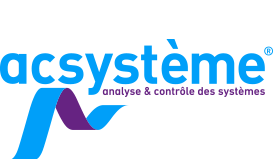On 12 June 2024, Excelcar organised the “Tour de France of 5G platforms” at the La Janais site in Rennes.
The programme included conferences, demonstrator presentations and a visit to the SNCF’s industrial Technicentre.
After a presentation by Excelcar, the industrial innovation acceleration platform, Olivier Armbruster, Philippe Herbert (chairman of Mission 5G) and Guillaume Bonnechère (DGE) highlighted the potential of 5G to transform our industry, stressing the importance of staying one step ahead in the field of future networks. “5G is the nervous system of industry”.
Two round tables were then held:
- “Digital transformation: the industrial 5G ecosystem is ready, what about you?” Lucille Couraud (SNCF), Antoine Brossault (Acome), Vincent Guizouarn (Cooper Standard) and Mathieu Peraud (UIMM),
- “Industry: Staying one step ahead thanks to 5G” with Thierry Lucidarme (BCom), Sergio Capitao (ID4Mobility), Hervé Saliou (Images et réseaux), Hamed Azouaou (Iqanto) and Arnaud Techer (Nokia).
During these round tables, the speakers explored how 5G can become a lever for industrial performance. Through their shared experiences, we were able to appreciate the benefits observed with the adoption of this technology: quality of life at work, task automation, increased traceability, remote control, etc. “5G is not an evolution of 4G, it’s a revolution that changes the way processes operate.” For example: coordinating AMRs with more equipment (cameras, etc.) and greater robustness when moving between buildings, etc., or enabling people with disabilities to operate pallet trucks easily from a distance, etc.
The day ended with a visit to the SNCF site by Mathieu Simon and Julien Mons. This was an opportunity to find out about the site’s work on the braking system, as well as the 5G applications currently being deployed there: traceability of maintenance operations, assistance with push-back, detection of part references, remote control of machines, etc.
The key to all these installations is the large amount of data generated, enabling precise tracking of processes and greater efficiency, as well as a host of functions enabled by remote control. However, it will still be necessary to ensure that this data is used effectively with decision-making tools (data analysis) and to develop robust control algorithms for remote handling.

